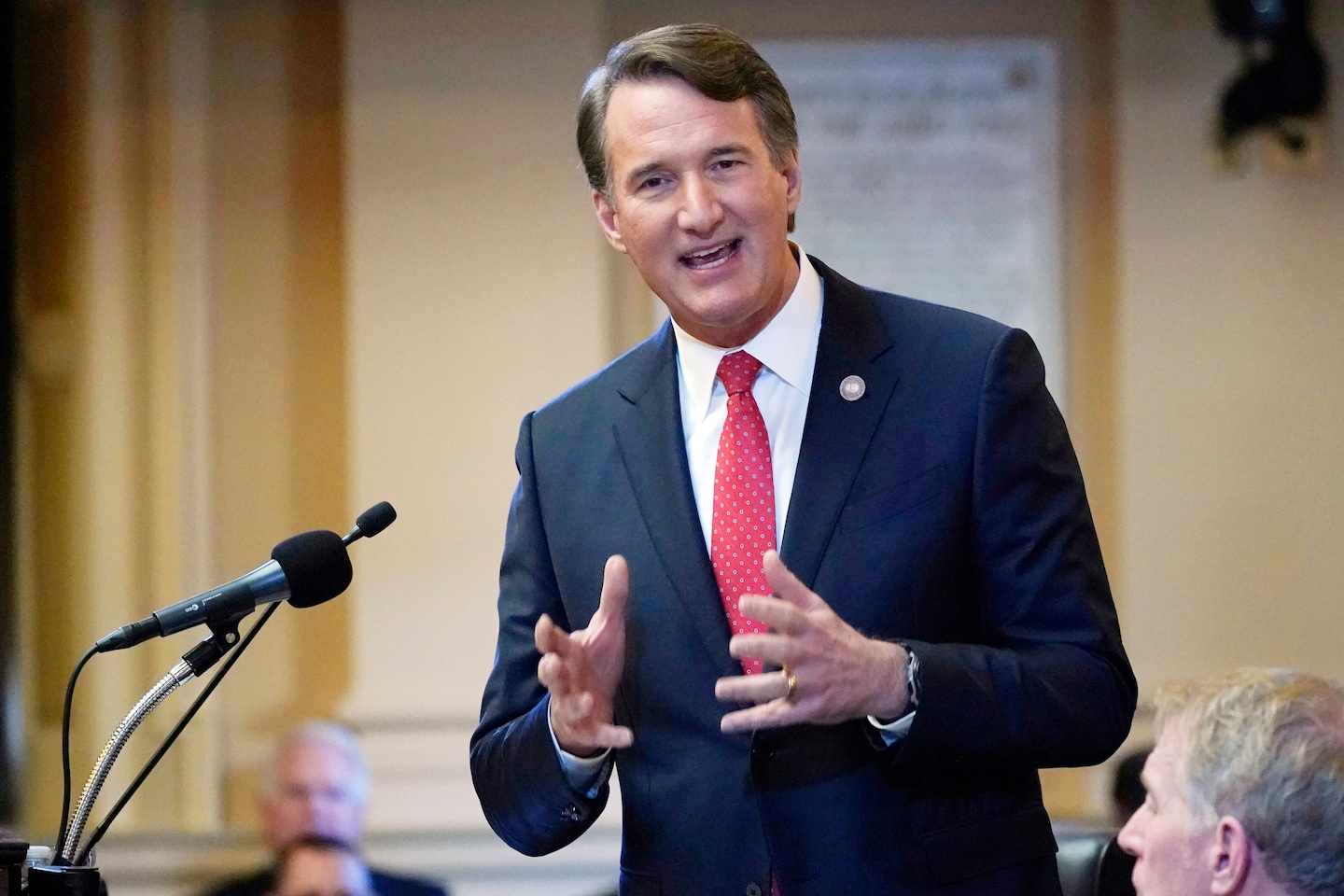
Two transgender students sued the Virginia Department of Education on Thursday, claiming controversial new policies that roll back protections for trans and gender-nonconforming students violate state law and have led to discrimination against them.
The ACLU of Virginia, which filed the lawsuits on behalf of the youths, asked judges to vacate the provisions that were among the most high-profile moves by Republican Gov. Glenn Youngkin, who made giving parents a greater say in educational issues a central plank of his campaign for office.
The Virginia Department of Education’s model policies offer guidance to school districts across the state as they set policies for transgender students, but they are not hard requirements.
Youngkin’s revisions, enacted in July, direct transgender students to use facilities that match their biological sex, make it harder for students to use their “affirming” names or pronouns at school, and do not require school staff to use a “affirming” name unless a parent requests it in writing.
The Youngkin administration received more than 70,000 public comments as it was formulating the model policies, which have become a lightning rod for criticism from Democrats as well as gay and transgender rights groups.
Wyatt S.M. Rolla, senior transgender rights attorney with the ACLU of Virginia, said the model policies have made trans youth unwelcome in schools, do not follow best practices based on research and violate the 2020 law that called for the creation of the model policies.
“These model policies are in direct conflict with what we know trans and nonbinary students need to succeed in public education,” Rolla said. “The second piece is they conflict with existing law.”
A spokesman for the Virginia education agency said the department had yet to be served with the lawsuits, so he couldn’t comment. A spokeswoman for Youngkin did not immediately respond to requests for comment Thursday.
One of the lawsuits filed in York County Circuit Court claims a teacher refused to use a transgender teen’s preferred name and pronoun during the current school year. The student’s mother had filed a form requesting the school use her daughter’s preferred name and pronouns before the year began.
When the student confronted the teacher, the teacher told the student she did not have to address the student in a way she found personally objectionable, mirroring language in the model policies, according to the lawsuit.
The student no longer felt comfortable in the class and was forced to rearrange her schedule to attend a different class, according to the lawsuit.
The other lawsuit, filed in Hanover County, claims a middle school student was barred from playing on a girls’ sports team after the school board learned the girl was transgender, according to the lawsuit.
The school district had adopted policies requiring students to play on teams that matched their biological sex in accordance with the model policies.
The model policies stem from a 2020 law that directed the education department to develop guidance to address “common issues regarding transgender students in accordance with evidence-based best practices and include information, guidance, procedures, and standards.”
Introduced by Democratic lawmakers, the law was designed to add protections for transgender students in K-12 public schools.
In 2021, Gov. Ralph Northam (D) released the first set of model policies under the law, which directed schools to allow transgender students to use restrooms, locker rooms and changing facilities that match their gender identity. The policies also recommended that teachers accept students’ gender identities and use their pronouns.
Youngkin’s policies replaced that guidance with a new emphasis on “parental rights.” The guidance follows four main principles: Schools shall respect all students; parents have the right to make decisions with respect to their children; schools shall serve the needs of all students; and schools shall partner with parents.
It then offers a sample policy that districts could implement in their schools.
“All children in Virginia deserve to have a parent engaged in their life and to be treated with dignity and respect,” Youngkin said in a statement at the time. “The VDOE updated model policies reaffirm my administration’s continued commitment to ensure that every parent is involved in conversations regarding their child’s education, upbringing, and care.”
Youngkin’s model policies were met with sharp criticism, sparking student walkouts and vows to take legal action. The policies were also praised by his supporters, who saw the policies as the governor delivering on his campaign promise to protect parental rights in education.
The policies leaves a lot of room for interpretation by school boards.
Since the policies were enacted, some school boards have adopted the policies as written, while others have either rejected or only partially adopted the guidance. Some have questioned whether the policies violated other preceding protections, like the Virginia Human Rights Act or the ruling in the legal case of Gavin Grimm, who sued his school board for excluding him from the boys’ bathroom at his school because he was transgender.
The result has been a patchwork of policies around the state — similar to the rollout of Northam’s model policies in 2021 when only 14 of the state’s more than 130 school districts fully adopted the guidance.
Loudoun County Public Schools, the district that was thrust into a political upheaval over its transgender student policy in 2021, planned to discuss its policy and the 2023 model policies in a committee meeting Thursday evening.



